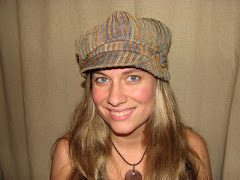
"It is, in fact, nothing short of a miracle that the modern methods of insturction have not yet entirely strangled the holy curiosity of inquiry, for this delicate little plant, aside from stimulation stands mainly in need of freedom."
-Albert Einstein
"I have never let my schooling interfere with my education."
-Mark Twain
"Education is not the filling of a pail, but the lighting of a fire."
-William Butler Yeats
I just finished reading a useful little book called: Home Is Where the Learning Is: Homeschool Lifestyles From Homeschool Moms, by Valerie J. Steinle. Though written simply and with a somewhat confusing layout, I enjoyed the outline of educational approaches and the collection of stories.
In the first chapter, she outlines 7 common educational approaches.
1) TRADITIONAL: parents use graded textbooks or workbooks-- they follow a schedule for 180 days of the school year.
2)CLASSICAL: children under 18 are taught using "the trivium" which has three parts:
*Stage 1: Grammar Stage: focus on reading, writing, spelling, LATIN, observing, listening, memorizing-- goal is to develop a general framework of knowledge, basic language arts and math skills.
*Stage 2: Dialectic Stage: starts around the age 8. children demonstrate independent, abstract thought. shaped by logic discussion, debate and learning to draw factual conclusions.
*Stage 3: Rhetoric Stage: final phase around age 15.seeks to produce a student who can speak and write eloquently and persuasively.
3) UNIT STUDY APPROACH: takes a theme or topic and learns all there is to know about it--integrates language arts, science, social studies, math and fine arts in a blend.
4) THE LIVING BOOKS APPROACH: based on the writings of Charlotte Mason--respecting children as persons, involving them in real-life situations, and encouraging well-written, intelligent books. no formal lessons for young children, just lots of time to play, reflect and create. once children at elementary age, encouraged to read the classics, travel books, historical biographies, art history.
5) THE PRINCIPLE APPROACH: uses Christian concepts. learning is based on principles-Individuality, Self-Government, Christian Character, Conscience. studies a lot of American history. emphasis on"reasoning through basic principles rather than regurgitating facts."
6) THE UNSCHOOLING APPROACH: letting children learn through their own desires and curiosities. generally unstructured. children pursue own interests with parental support and guidance. based on style by John Holt- his motto was "trust children".
7) THE MIXED APPROACH: a blend of the different approaches, adjusted for each child.
I tend to be a "take a little bit of everything" person. So, I was not surprised when I gravitated most toward the "Mixed Approach." I am doing about an hour of homeschooling with my daughter in the mornings during Soul-Baby's nap. She seems to really like/need variety. Sometimes we'll read, or work in an activity book. Sometimes we'll do flashcards for a little while. Other times, we'll bake and talk about the measurements: what comes first, whose cookie is biggest.
The other day, she seemed distracted, so we painted and played with play-doh. It seems important at this age (3 and 1/2) to just practice focused time together. It also seems important to her that I let her lead as we play, affirming that she has good ideas, and can interest me in her thoughts and questions.
I was encourged by this book, to keep at it, to stay flexible and to BE CREATIVE.
The following women were featured in the book:
Cherie Logan--mom of 10, author and speaker.
Lisa Odaffer--lives and homeschools on a 45-foot sailboat.
Gail Thomas-- focused on raising people who can build a life for themselves.
Donna Knox--midwife, mom of 9, particularly focused on helping homeschoolers avoid burnout.
Karen Gibson-- freelance writer, "unschooled" her teenager.
Debbie Hanson-- writes about her "hard-to-teach" child.
Lisa Hyman-Johnson-- mom of 2, former teacher.
I'll also include a list of websites:
Family Unschoolers Network www.unschooling.org
Eclectic Homeschool Online www.eho.org
Growing Without Schooling www.holtgws.com
Homeschool Digest www.homeschooldigest.com
Homeschooling Fun www.homeschoolfun.com
Homeschooling Today www.homeschoolingtoday.com
Natural Life www.life.ca/hs/index.html
Canadian Home-Based LEraning www.flora.org/homeschool-ca
I am amazed at the world that is opening for me as I research homeschooling. Homeschoolers are everywhere!


5 comments:
hey! just wanted to say i love the lay out - looks great!
nice to know you are finding lots of resources to support you as a mother! :)
thank you elizabeth, for your encouragement. glad you like the new look!
Thanks for all the links! This is something I need to start researching...
My dear daughter, you sound like your mama monk in many ways. I love those found treasures and the joy of teaching little ones too.
I'm so encouraged and hopeful for the next generation when I see how new moms have embraced homeshooling. It's such a joy, so necessary for our society and will produce truly educated minds and enlightened souls that glorify God.
thank, mama. i love you.
Post a Comment